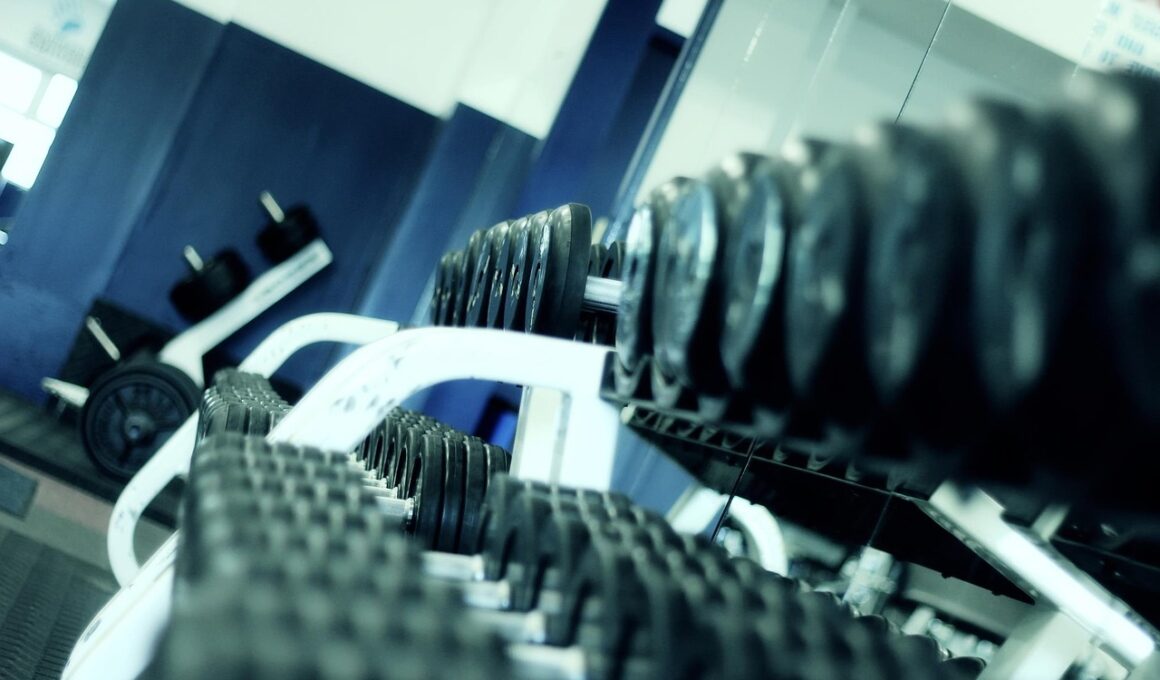The Role of Genetics in Muscle Development
When it comes to bodybuilding, genetics plays a critical role in muscle development and overall physique. Not every individual has the same potential for muscle growth, due to genetic variations. These variations can affect hormone levels, body composition, muscle fiber type, and responsiveness to training. Some individuals naturally possess a higher percentage of fast-twitch muscle fibers. This type of fiber is beneficial for strength and power, making it easier for a person to excel in weightlifting. Additionally, genetic factors can dictate how a person’s body responds to different training regimens, impacting results. Other factors include the ability to build muscle efficiently and recover adequately after workouts. Understanding these genetic influences is essential. Athletes can tailor their training programs to their strengths. Acknowledging one’s genetic predispositions can help minimize disappointment and maximize gains. The two main limiting factors are genetic predisposition and environmental influences, such as diet and exercise. While we cannot change our genetic makeup, awareness can optimize our training strategies. Genetics is just one piece of the puzzle in achieving success in bodybuilding.
Nutrition is crucial in muscle development, but genetics establishes the baseline for individual response to dietary changes. Identifying the right balance of macronutrients is essential for promoting muscle growth. Genetic factors can dictate how effectively individuals metabolize proteins and carbohydrates. Bodybuilders should track their macronutrient intake and find what works best for them through trial and error. Some people may find they need higher protein to support muscle repair and recovery. Conversely, others might need extra carbohydrates to sustain energy levels during intense workouts. Nutritional timing also plays a significant role in muscle synthesis. Some genetically blessed individuals might experience better results from post-workout nutrition. Therefore, understanding personal dietary needs is vital to optimize training outcomes and improve performance. Supplementation can be beneficial too. However, it’s essential to recognize that no supplement will override genetic limitations. Before relying on supplements, consult with a healthcare provider. Focus on obtaining nutrients naturally, and only use supplements to fill gaps in your nutrition. On that note, keeping a detailed food diary could help determine the best nutrition plan suited to genetic predispositions.
Training Adaptations and Genetic Influences
When discussing muscle development and growth, training adaptations occur differently based on genetics. Training intensity, type, and frequency significantly influence muscle hypertrophy. Individual genetic traits determine the potential for muscle fiber transformation under varying training stimuli. Some may effectively switch slow-twitch fibers into fast-twitch fibers, enhancing strength capabilities. Training principles such as progressive overload remain crucial for all individuals development, but genetic predispositions suggest that recovery may differ, leading, in turn, to varied results. Training regimens can induce fast rate adaptations in some but may work comparatively slower for others. Muscles require adequate rest and recovery to grow. Genetics may also influence injury susceptibility and response to training-induced fatigue. Athletes with genetic advantages typically have a lower risk of overexertion or injury. Effective training strategies should blend high-intensity workouts with proper rest. Fitness trainers should prioritize individual responses and stress adaptation mechanisms for maximum hypertrophy potential. By customizing training plans, one can work around their genetic limitations. A comprehensive understanding of genetic influences lays the foundation for developing effective training strategies that can help reach bodybuilding goals.
Hormonal responses to training are another aspect where genetics come into play, affecting muscle growth. Hormones like testosterone and growth hormone are pivotal in building muscle mass. Genetic variations can dictate baseline hormone levels and responses to training stimuli. For instance, individuals with higher testosterone production often experience accelerated muscle growth compared to those with lower levels. Furthermore, hormonal responses can differ during various training phases. While some individuals bounce back quickly after workouts with robust hormonal surges, others may experience subdued responses to training stimuli. Enhanced hormonal production facilitates protein synthesis, pivotal for muscle recovery and building. Those genetically predisposed to lower hormonal profiles might opt for varied approaches to boost growth, such as adjusting training intensity, frequency, or even nutritional strategies concentrating on testosterone-enhancing foods. It’s crucial to realize that these hormonal responses can be modulated, but foundational genetic actions dictate the upper limits. While everyone aims for the best results, recognizing hormonal influences underscores the importance of listening to the body. Responding to hormonal cues may often signal when to intensify workouts or ease off for optimal recovery.
The Influence of Body Composition
Body composition profoundly impacts bodybuilding performance and muscle development, closely linked to genetic factors. Genetics greatly influences the distribution of muscle and fat across the body. Individuals may exhibit varying ratios of lean muscle mass to fat mass, which can dictate overall physique and strength. Some may find they build muscle with ease while maintaining lower body fat levels. Others may struggle to achieve a similar balance. This innate predisposition can affect the effectiveness of bodybuilding strategies. Bodybuilders may need to employ different approaches to their routines based on their body composition. For example, someone genetically inclined to store more fat may benefit from incorporating increased cardio and caloric deficits into their training plans. In contrast, those with a fast metabolism might focus on caloric surpluses and strength training. Consulting with fitness professionals is recommended to fine-tune personal training strategies. Aside from training, diet and supplement regimens must also reflect body composition goals. Recognizing these genetic influences is vital. Understanding these nuances allows for optimized programs to achieve desired results, paving the path for effective bodybuilding progress.
Individual recovery rates vary among athletes, intricately linked to genetic predispositions that can impact muscle development and growth. Adequate recovery is critical after rigorous training sessions that push muscle boundaries. Some individuals have faster recovery rates, allowing them to train heavily and frequently, while others may require extended rest periods for effective muscle repair. Genetic factors can influence various aspects of recovery, including inflammation response and muscle repair rates. Recovery strategies like stretching and hydration are essential for everyone, but their effectiveness can depend on one’s genetic predisposition. To track recovery rates effectively, athletes can monitor changes in strength and performance metrics over time. Keeping track of how muscles respond after training intensities provides direct indicators of when to push further or ease off. Nutrition also plays a key role in this process, specifically high-protein diets which can expedite recovery. Stress management and sleep quality are crucial too. Genetics affects how one responds to stressors, which can hinder or bolster recovery. Therefore, paying attention to individualized strategies that optimize rest can substantially influence bodybuilding success over the long term.
Conclusion: Embracing Genetics in Bodybuilding
In conclusion, genetics undeniably plays a significant role in muscle development within bodybuilding. While not everyone possesses the same potential for growth and strength due to their genetic makeup, they can still achieve remarkable results through tailored training and nutritional strategies. Understanding individual genetic predispositions allows athletes to adapt their approaches effectively. It is essential to recognize that genetics is only one aspect of the multifactorial equation involving bodybuilding success. Factors such as training intensity, nutrition, and mental resilience also play significant roles. Instead of viewing genetics as a limiting factor, embrace it. Knowing where one stands genetically enables bodybuilders to focus on maximizing their strengths while compensating for weaknesses. The journey to achieving bodybuilding goals is more holistic when incorporating genetic realities. Ultimately, success in bodybuilding isn’t merely about the weight lifted but understanding one’s body. Personalization is essential amidst a diversity of genetic profiles to reach excellence in bodybuilding effectively. Every athlete can cultivate their unique potential with the right mindset, collaboration, and strategies, paving the way for success.


